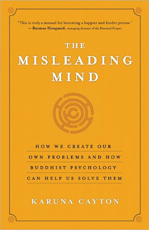"The emotions that fall under the category of 'aversion' are, in one sense, the mirror opposite of the category of attachment, though all these afflictive emotions include an 'attachment' to a particular outcome. Typically, aversions are easier to recognize as 'negative' states. Instead of wanting or desiring to possess some object, goal, or inner experience, we want to avoid, stop, move away from, or distance ourselves from an object or experience. The emotions that fall under this category include anger, frustration, rage, meanness, cruelty, irritation, dislike, repulsion, fear, anxiety, resentment, envy or jealousy, impatience, self-hatred, self-loathing, and annoyance. Anxiety or worry may not always be the result of an aversion, but they represent a type of fear. For instance, we may be anxious that a party we've planned will go well. In this case, our worry may seem to be 'caused' by our attachment to wanting a successful party, but the actual worry arises from an aversion to a negative outcome and the feelings that will generate. Thus, we seek to avoid or move away from that possibility.
"Aversion arises when something occurs in the world that we want to deny or avoid or that we disagree with. Aversion is closely connected to discomfort. In fact, we can say it arises in dependence upon discomfort just like attachment arises in dependence upon 'comfort' or pleasantness. We may feel discomfort with contrary beliefs, points of view, or ideas. We may feel discomfort with what we consider an unattractive or crass person or with a person from a culture, ethnicity, or background that's strange or unfamiliar to us. Where this gets tricky is that our sense of moral righteousness typically rests on what we judge as 'wrong,' those things in the world or ourselves that we want to change. In some situations, we might consider our anger as legitimate (and thus 'positive'), such as when we feel anger upon encountering a clear injustice like murder or war. However, all anger is considered an afflictive emotion in that it disturbs the mind and needs transforming, no matter how 'justified' it is."
